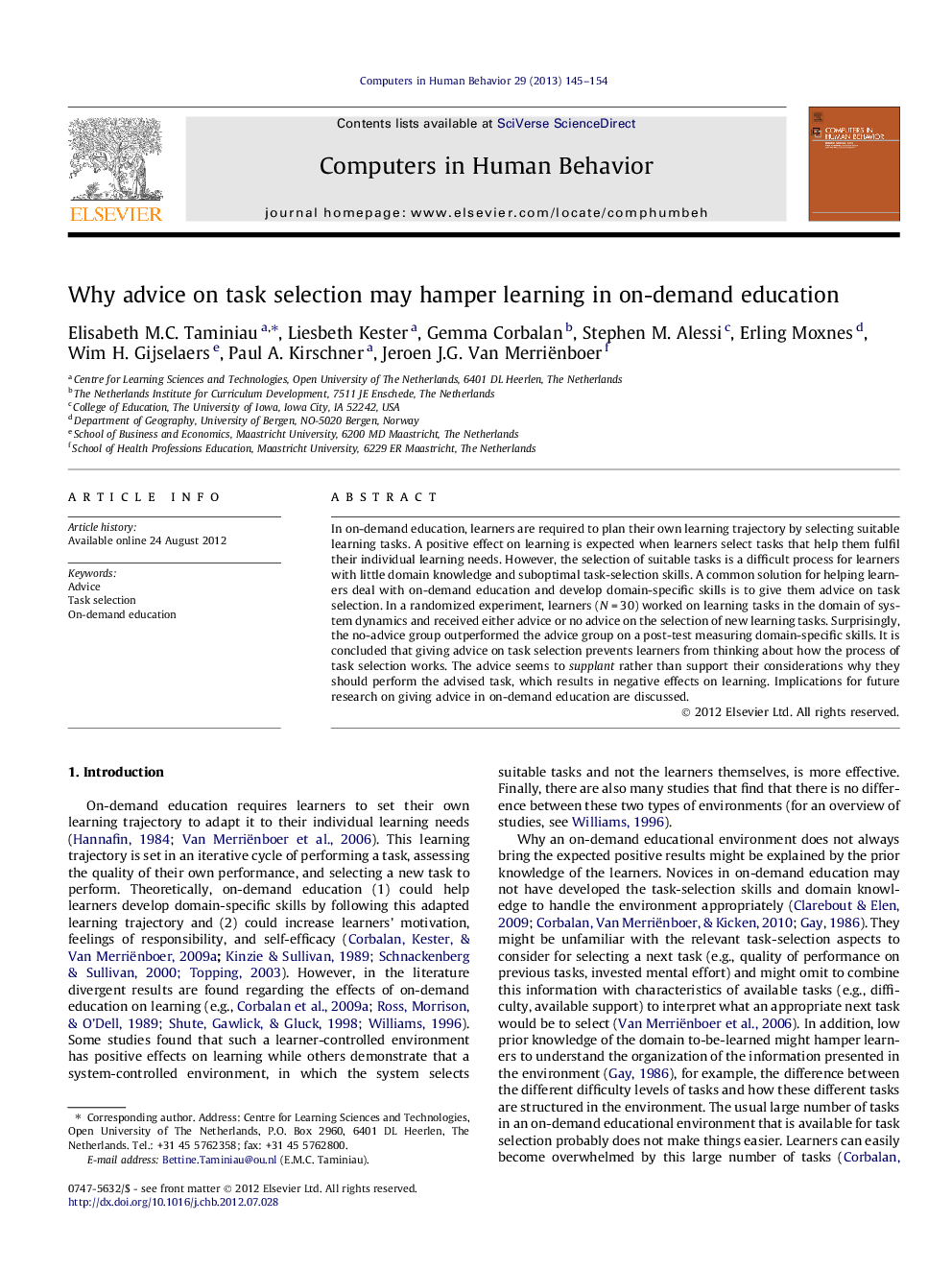| کد مقاله | کد نشریه | سال انتشار | مقاله انگلیسی | نسخه تمام متن |
|---|---|---|---|---|
| 351161 | 618464 | 2013 | 10 صفحه PDF | دانلود رایگان |

In on-demand education, learners are required to plan their own learning trajectory by selecting suitable learning tasks. A positive effect on learning is expected when learners select tasks that help them fulfil their individual learning needs. However, the selection of suitable tasks is a difficult process for learners with little domain knowledge and suboptimal task-selection skills. A common solution for helping learners deal with on-demand education and develop domain-specific skills is to give them advice on task selection. In a randomized experiment, learners (N = 30) worked on learning tasks in the domain of system dynamics and received either advice or no advice on the selection of new learning tasks. Surprisingly, the no-advice group outperformed the advice group on a post-test measuring domain-specific skills. It is concluded that giving advice on task selection prevents learners from thinking about how the process of task selection works. The advice seems to supplant rather than support their considerations why they should perform the advised task, which results in negative effects on learning. Implications for future research on giving advice in on-demand education are discussed.
► On-demand education enables learners to set their own learning trajectory.
► However, learners without task-selection skills might be hampered in learning.
► This study tests whether task-selection advice helps learners to improve learning.
► The advice prevented learners to consider how the task-selection process works.
► Therefore, the advice hampered instead of helped their learning.
Journal: Computers in Human Behavior - Volume 29, Issue 1, January 2013, Pages 145–154